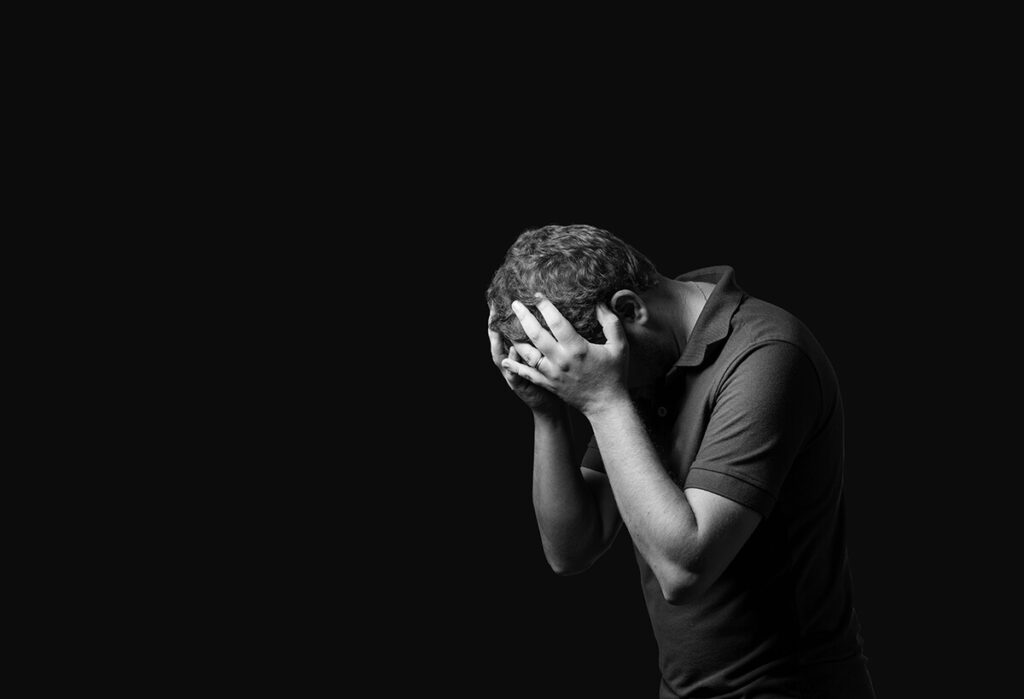Depression and anxiety are among the most common mental health disorders in the U.S., affecting millions of people each year. While each condition has its own triggers, symptoms, and treatments, there are also similarities between the two. There can also be a connection between anxiety and depression, with one leading to the other.
Many people who suffer from depression do so as a result of long-term anxiety. The brain and the body eventually wear down into a depressive state. The same can happen with depression. Ultimately, depression can lead to severe anxiety disorder, causing panic and worry. If you struggle with anxiety and depression, learn more about how TruHealing Centers can help you by calling [Direct].
Symptoms of Depression and Anxiety
At first, the symptoms of anxiety and depression are not evident. As the condition slowly worsens, the symptoms become more apparent, affecting nearly every area of a person’s life. Common signs that anxiety and depression share include:
Excessive Worry
Worry is the brain’s normal reaction to harmful or threatening situations or circumstances. Too much worry can paralyze a person emotionally, leading to anxiety attacks and a depressive state that is hard to put behind them. Excessive worry can cause a person to want to stay in bed and avoid life’s challenges.
Restless Feelings
A person who suffers from both anxiety and depression is continuously restless. They may understand why they feel restless all of the time. In many instances, the uneasy feelings may occur even when there is no reason to be agitated or worried. People who have this symptom are always on edge and waiting for something negative to happen.
Muscle Tension
A person who is suffering from anxiety and depression is never truly relaxed. There is always a tense muscle somewhere in their body. They may be so accustomed to having tight muscles that they don’t feel them. Only when they assess their relaxation, do they realize that they have one or more tense muscles.
Excessive Emotions
A person who is suffering from depression and anxiety at the same time has intense mood swings and emotional feelings. They may feel worthless, hopeless, guilty, angry, bitter, or fearful. They don’t need a reason to feel this way, as it occurs without warning. Therefore, it is hard for a person to validate these feelings. They often don’t know why they feel this way.
Withdrawal
Withdrawal is one of the most common symptoms of anxiety and depression. When a person is worn down from these types of mental health disorders, they would rather be alone instead of feeling the pressure of being around others and explaining themselves. Withdrawal can last for several days at a time. A person may ignore their obligations, such as work, home, or school.
Difference Between Depression and Anxiety
Perhaps the most significant difference between anxiety and depression is the immediate effect they have on the body. A person going through anxiety may exhibit a lot of energy. Symptoms may include:
- Rapid heart rate
- Emotional outbursts
- Panic attacks
- Increased breathing
A person going through depression experiences a somewhat opposite reaction that differs from anxiety. Symptoms may include:
- Fatigue or tiredness
- Withdrawal from friends and family
- Changes in appetite or sleep
- Feelings of apathy or loss of empathy
It is essential to understand the differences between anxiety and depression so that you can get the right treatment.
Learn More About Depression and Anxiety at TruHealing Centers
If you have depression and anxiety, then contact TruHealing Centers. We offer a wide range of addiction treatment programs. To find out more about treatment options, contact TruHealing Centers today at [Direct]. We can help you get started with the right program for depression and anxiety.








